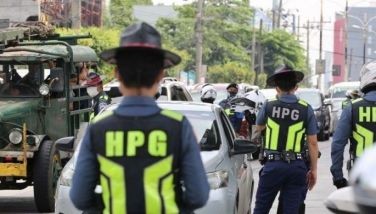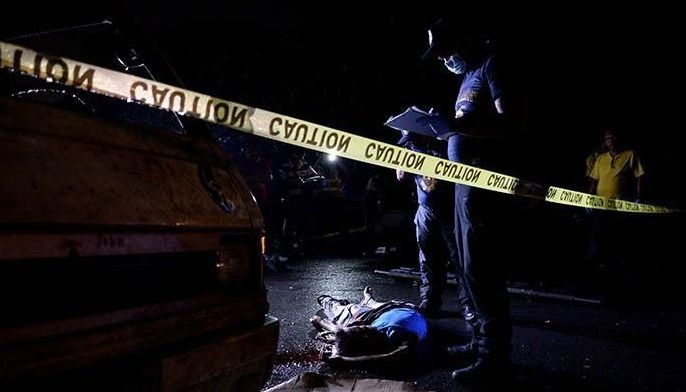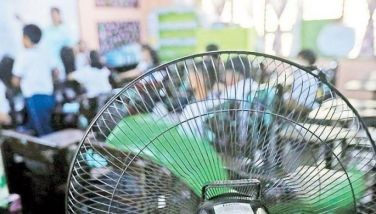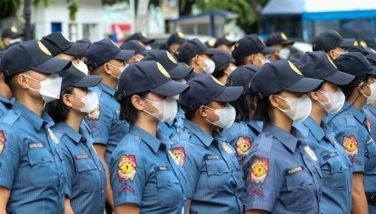Fewer medical workers getting COVID-19 but fear, lack of testing and PPEs remain
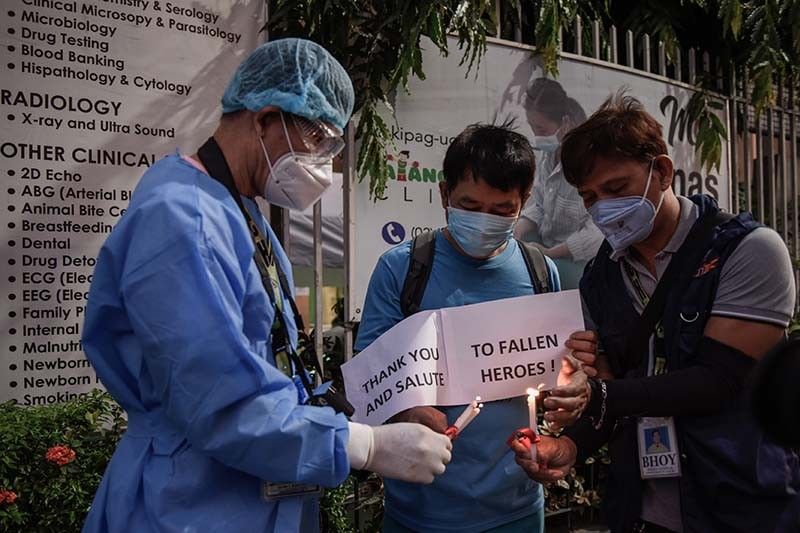
MANILA, Philippines — Without widespread testing and adequate protection, healthcare workers in the Philippines work in fear on the frontlines of the country’s fight against the novel coronavirus.
According to government data, 2,314 medical frontliners have contracted the coronavirus disease as of May 18, highlighting the reality that those in the health sector face a higher risk of getting infected.
At least 35 have died of the disease.
While health workers account for 18% of the nation’s confirmed cases, the number of infected frontliners has been decreasing since its peak on April 10, the Department of Health said.
Health Undersecretary Maria Rosario Vergeire said “the infection prevention and control measures that are being strictly implemented in hospitals” has helped in slowing down the spread of virus among health workers.
But medical workers are still afraid and feel they are poorly protected three months into the health crisis, groups Alliance of Health Workers and Filipino Nurses United said.
“We are very afraid. We are deeply concerned with the situation,” Jocelyn Andamo, FNU secretary general, told Philstar.com in Filipino in a phone interview.
Mass testing of health workers
Andamo feared that the actual number of infected health workers might be “bigger” than the figure reported by the DOH because of a lack of testing among their ranks.
"How does the DOH know [the number, when] majority of the nurses and health workers have not been tested yet?" she said.
In DOH’s tally, 36% of the infected frontliners are nurses, while around 29% are physicians. Some 144 nursing assistants, 84 medical technologists, 42 radiologic technologists have also caught the disease.
Meanwhile, the number of infected non-medical staff is at 284.
Of the 1,341 active cases, nearly 74% were mild, while about 26% were asymptomatic. Only 0.07% of the infected health workers were critical, while 0.29% were severe.
According to the latest count, 207,823 people have been tested for COVID-19 in the country. The DOH did not indicate how many of the tested individuals were from the health sector.
AHW and FNU suggested that medical frontliners should be regularly tested for COVID-19 since they are the ones taking care of patients. Under the government’s testing protocol, only health workers with severe or mild symptoms are eligible for testing.
“Health workers are prone to contracting the virus once they enter hospitals. Even administrative staff are prone to getting infected. That's why health workers are afraid now because many are infected. The human resources are dwindling,” AHW president Robert Mendoza told Philstar.com.
Andamo also said that nurses are required to report for duty even without being tested, running the risk of exposing other health personnel and patients to the virus.
‘Not sufficiently protected’
Health workers get infected primarily due to the limited availability of personal protective equipment aggravated by long hours of duty, the groups said.
AHW and FNU said they have received reports of health workers using cloth face coverings instead of surgical masks and N95 masks, which offer better protection. There were also incidents of frontliners reusing their PPEs.
DOH said it has so far distributed 4.08 million face masks, 1.36 million gloves, 716,795 coveralls, 683,514 gowns, 594,908 goggles, 179,276 face shields, among other protective gear to health workers.
The Office of Civil Defense—the defense department agency that consolidates all donations to the national government—is also distributing medical supplies and equipment to frontliners.
But Andamo said medical workers are still “not sufficiently protected.”
“It's possible that they are providing masks but these are very insufficient because nurses are still asking for protection and many nurses in isolation rooms do not take off their PPEs. Why? They are saving the gear because PPEs are lacking,” the FNU secretary general said.
"Nurses are struggling but we do not see actual help on the ground. We fear that we might not control the infection without the concrete support of the government," Andamo said.
The World Health Organization earlier said that the Philippines has one of the highest infection rates among health workers in the Western Pacific region. In the region, the average is 2% to 3% of medical frontliners infected, with South Korea, Australia and Japan having “low” percentages.
Mass hiring of health workers
Last week, the national government began loosening confinement measures to inject life into the economy paralyzed by a two-month lockdown. Virus hotspot Metro Manila was placed under a more relaxed enhanced community quarantine that allowed the reopening of commercial establishments and return of Filipinos to work at half capacity in many industries.
Other parts of the country, meanwhile, are under varying level of community quarantines.
Experts warned that easing of virus restrictions could cause an uptick in COVID-19 cases, which could crash the country’s already overburdened health system and overstretch resources.
“The healthcare system was inadequate even before. We did not have enough personnel. We did not have enough equipment. That is what is frightening. How will we manage [an increase in cases]?" Andamo said.
With the expected surge in cases, the two organizations demanded that the government hire more nurses and other health workers to ensure adequate staffing for hospitals and communities. FNU, for its part, recommended the mass hiring of 46,000 nurses.
In his latest report to Congress, President Rodrigo Duterte said the 1,759 health workers have been hired and deployed to 31 hospitals and quarantine facilities out of the 5,601 slots for emergency hiring approved by the DOH. Of that number, 79% were assigned in Metro Manila.
AHW and FNU said the COVID-19 crisis should serve as a wake-up call for the government to prioritize the health of its constituents.
“The government should prioritize health by increasing the national health budget to 5% of the country’s gross domestic product so they can provide free health services and free mass testing, strengthen public health and not put budget to PhilHealth but allot it for services in government hospitals,” Andamo said.
- Latest
- Trending

















